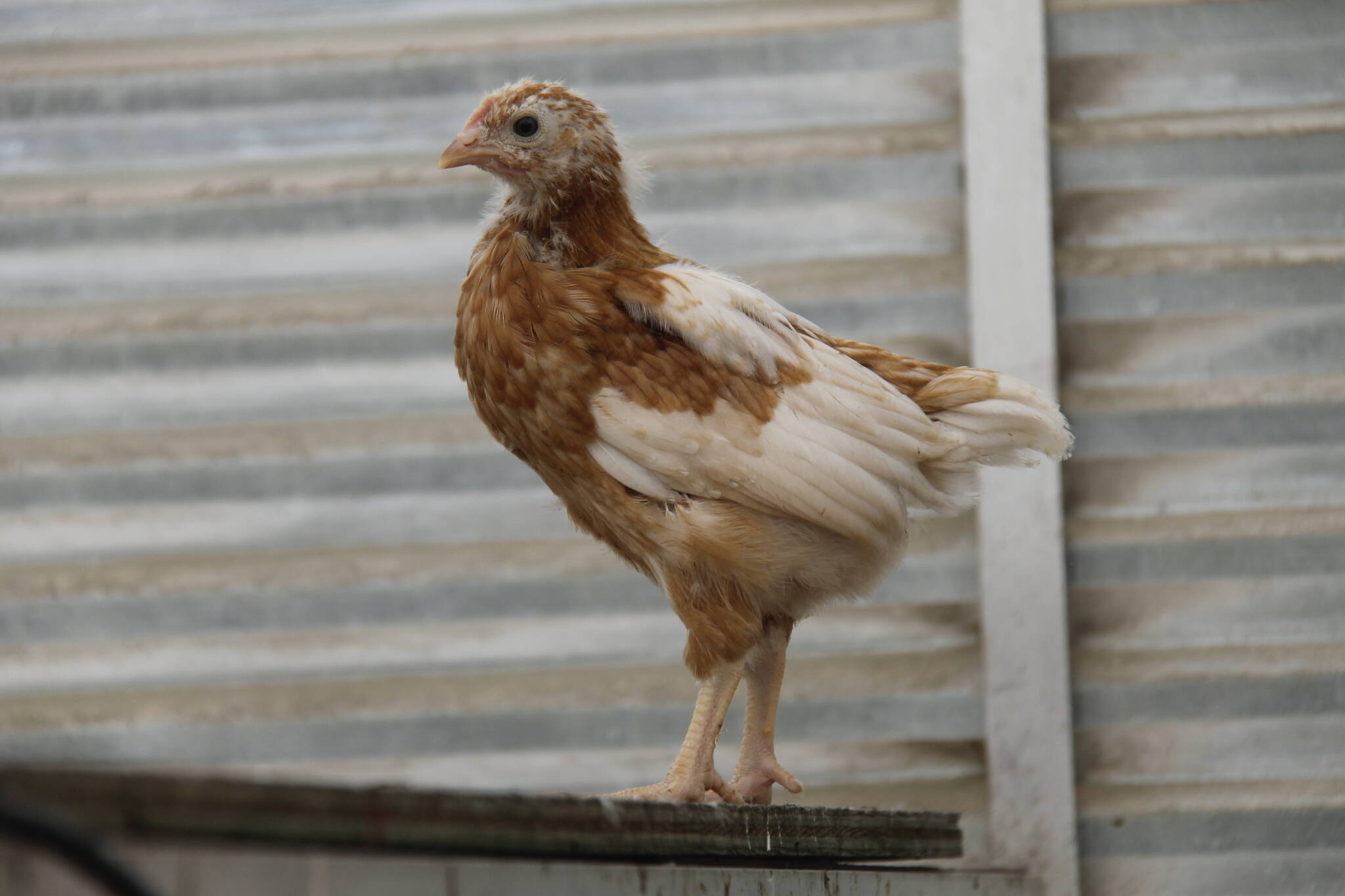Three years after her graduation, one Organic Farm School alum is finally turning her business plan into a feathery reality.
Lifelong chicken lover Maria Converse attended the educational institution in the Maxwelton Valley in 2020 as part of what she fondly refers to as “the COVID class.” The oldest in her class, Converse became interested in farming following her retirement from a 20-year career as a pilot.
As part of their education at the Organic Farm School, students prepare and present a farm business plan. Converse’s idea consisted of an egg-laying operation, in which free-range hens could happily produce a copious amount of eggs.
Converse moved back to South Whidbey in 2023, and while volunteering at the Organic Farm School earlier this year, Executive Director Judy Feldman approached her about hatching her chicken plan at last.
Farm Manager Jeff Markette said it’s not uncommon for the school and nearby property owners to allow new farmers to take a “test run” at their incubator projects, whether it has to do with livestock, crops or egg layers.
“We’re pretty fortunate to live in a place and live in a community like Whidbey that supports so many farmers, and so many new farmers,” he said.
And so the first week of October, 115 Novogen chicks arrived from a hatchery in Oregon at just 24 hours old.
“You get this little peepy cardboard box full of chickens, and then you’re in the game,” Converse said with a laugh.
Novogen chickens are a cross between a white leghorn rooster and a Rhode Island red hen. Leghorns are known for being strong layers, while Rhode Island reds give the eggs their brown color.
Now seven weeks old, the teenage chickens are starting to get more feathers as they mature, and they have plenty of character.
“They’re fun to watch,” Converse said. “Always little personalities are coming out, they’re interacting with each other.”
When they first arrived, Converse kept her flock in a small heated structure she referred to as a “brooder.” Last week she moved them to a bigger space in a greenhouse with electric fencing. After that, they’ll be headed outside once their feathers come in fully and they can better regulate their body temperature.
“As long as you can keep them in a space that’s dry and out of the wind, they can go into freezing weather just as long as they’re not cold and being blown on,” she said. “They’re tougher than you think.”
Of course, keeping them safe from Whidbey’s many aerial predators will pose a challenge. Converse said there are structures that can be built to interrupt the swooping patterns of eagles and hawks.
Novogen chickens are expected to start laying eggs at around 18 weeks old, which will be mid-February for Converse’s flock. She anticipates that each chicken will lay about 5-6 eggs on a weekly basis, which will work out to about 50 dozen eggs per week. She plans to sell them at the Organic Farm School’s Wednesday farm stand and through Whidbey Island Grown Cooperative’s Food Hub.
Hens consistently produce eggs for about three years, after which laying levels drop off. When that happens for her flock, Converse said, the chickens will either retire as backyard pets or become dinner.
But until then, they’ll happily spend their time at the Organic Farm School scratching, digging, eating and pooping as they move throughout the crops.



